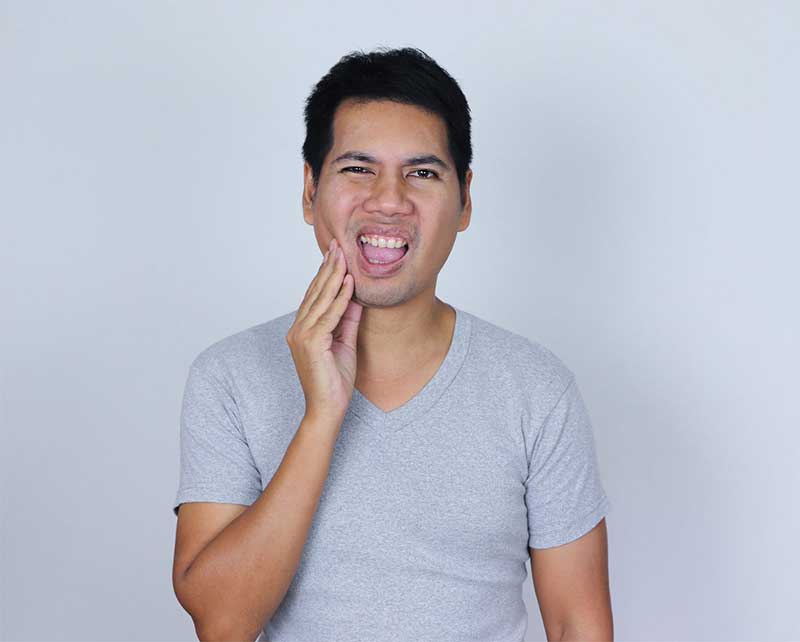How Stressing Less Could Save Your Teeth
Stress is abundant. Wracked with cluttered schedules, traffic jams, financial burdens, medical worries, and too many electronic screens, no one’s blaming anyone for feeling a bit stressed out.
We don’t want to add to your list of worries, but you might not realize that excessive stress could negatively impact your teeth.

How Stress Is Linked to Unhealthy Teeth
Many suffer from a condition called bruxism, which is characterized by teeth grinding and jaw clenching. Pretty much everyone grinds their teeth or clenches their jaw occasionally, even while awake, but in those who suffer from bruxism, it’s more serious because the condition puts excessive wear and tear on the teeth. As a result, bruxism can cause pain, sensitivity, overly worn enamel, and broken teeth.
Genetics and sleep disorders can contribute to bruxism, but the exact cause isn’t completely understood. We do know that it’s much more likely to occur when people are stressed.
How You Can Tell if You Have Sleep Bruxism
The tricky thing about bruxism is that it tends to occur when people are asleep. In these cases, it’s called sleep bruxism. Most people with sleep bruxism don’t even realize they’re grinding their teeth.
Although you probably won’t catch yourself grinding your teeth, you will likely wake up with symptoms. If you’re clenching your jaw or grinding your teeth at night, you might experience pain or persistent headaches upon waking. You might experience stiffness in your jaw or overly sensitive teeth. Your dentist might be able to help you spot signs of bruxism, too, by identifying enamel that’s excessively worn.


Reduce Stress to Preserve Your Teeth
Since stress has been shown to be a major factor in individuals with sleep bruxism, taking intentional steps to reduce the stress in your life can help you protect your teeth. Of course, some circumstances in life can’t be changed, but you can work on adjusting your response to stressful situations.
Some tried and true methods of stress reduction and bruxism prevention include meditation before bed, taking an evening walk, soaking in the bath before bed, listening to soothing music or other sounds before falling asleep, maintaining a healthy diet, and being sure to get regular exercise.
At Schaffer Dental Excellence, our dentist can also help you combat the effects of bruxism with a night mouth guard and by ruling out or addressing other complications, such as TMJ dysfunction. If you suspect you’re grinding your teeth at night, we encourage you to schedule an appointment right away.


